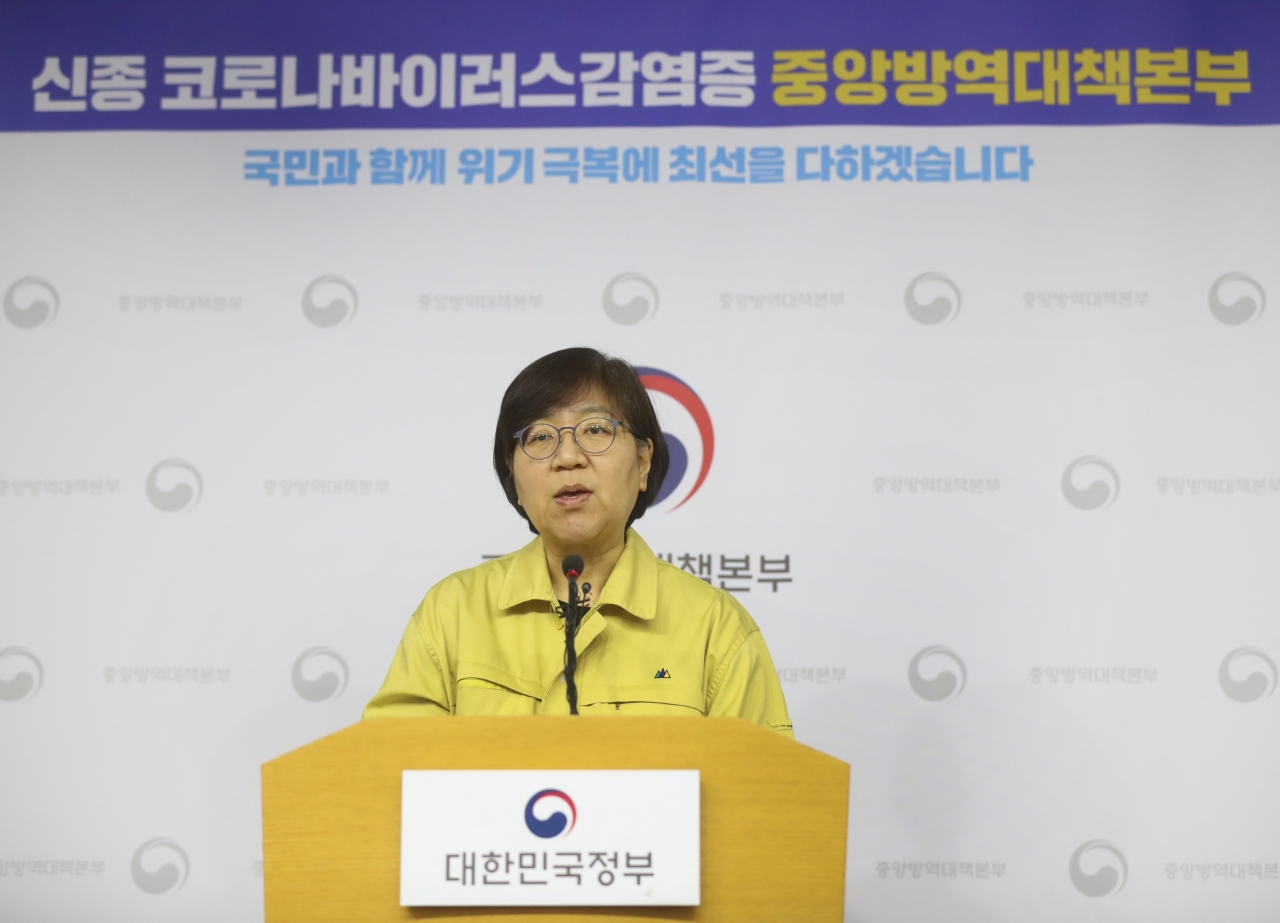South Korea “may face a health system collapse” if it fails to tackle the ongoing resurgence of coronavirus, the Korea Centers for Disease Control and Prevention’s Director Jung Eun-kyeong said Monday, calling for immediate interventions to beat back the transmission.
Health officials reported 197 new coronavirus cases Monday, bringing the total number of cases in the country to 15,515. The daily new cases have been in triple-digits for four straight days, a number not seen since the initial peak in Daegu.
Seoul saw a record number of new cases at 89, the highest since the coronavirus arrived in the beginning of the year. An overwhelming majority of them were tied to churches, most notably the Sarang Jeil Church in the northern district of Seongbuk. Of the nearly 2,000 worshippers tested so far, 16.1 percent, or 312, returned positive results. Some 2,000 more are still undergoing testing.
Many of the worshippers are believed to have been present at an anti-Moon Jae-in rally held Saturday at a central Seoul square, health officials said, urging the church in question to provide details for contact tracing.
Police have set up a 29-member task force to crack down on the rally’s organizers, one of whom is the church’s pastor Jun Kwang-hoon. Jun, who heads the Christian Council of Korea, has been reported to police by the government on suspicions of violating laws on infectious disease control, among others.
Gyeonggi Province, which surrounds the capital, counted 75 more cases, around half of which were also related to churches. At least 131 cases have stemmed from another church in the province, with all of the church’s visitors being tested regardless of the presence of symptoms.
The church outbreaks are an eerie flashback to the country’s first wave of the epidemic in late February through March, when infections spread mainly through followers of the Shincheonji Church of Jesus.
While contact tracing is only halfway complete, the Sarang Jeil Church is already the second-largest cluster of coronavirus infections in the country, behind only the Shincheonji-linked 5,214 cases.
Infectious disease specialist Dr. Lee Jacob, who was on the committee of health experts advising the government’s coronavirus policies, said in a Facebook statement that churches should offer their services online or in a way that makes physical distancing possible.
“Outbreaks have spawn out of several churches in Seoul and Gyeonggi Province. As church communities tend to have a high proportion of senior members, this can lead to a climb in patients who are more seriously ill,” he said.
Indoor dining places are becoming common settings of community outbreaks as well, as businesses have opened their doors to customers again since April. Health experts agree indoor spaces are far riskier than outdoor spaces.
In Paju, Gyeonggi Province, a Starbucks had to close down after 48 employees and visitors tested positive for the coronavirus. After the cases were found, the coffee chain said it would limit the number of tables at its stores and place them 1 to 2 meters apart as per recommended protocols by public health authorities.
Jung of the KCDC said the risk of infection “has extended beyond high-risk establishments to lurk in everyday places such as restaurants, cafes, bars and grocery stores.”
“Particularly in the Seoul area, there could be a larger share of individuals with minimal or no symptoms who are going undetected,” she said, reminding the public to socially distance. Over a tenth of cases reported in the past two weeks were “untraceable,” according to the disease control agency, meaning their routes of infection are unknown.
Meanwhile, Gwangju shut down 682 nightlife establishments in the city following cases among escorts and their clients at 18 karaoke bars. Nearly 200 people who came in contact are currently isolating.
A day before on Sunday, Prime Minister Chung Sye-kyun, who helms Korea’s coronavirus response, issued a stricter physical distancing warning for the Seoul metropolitan region.
“It is feared that the crisis the country has witnessed earlier in Daegu and North Gyeongsang Province may be repeated in Seoul,” he said. “As authorities struggle to both keep the country open and curb the spread, compliance with social distancing and contact tracing guidelines remains important.”
By Kim Arin (
arin@heraldcorp.com)








